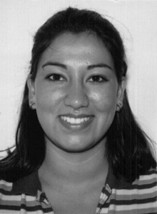
Religion, relatively speaking
I am ecstatic over the ongoing debate that seems to have been sparked by my commentary titled “Spirituality is key.” Although it has departed significantly from my original intent of the article, I think it’s very important that students, faculty and other members of our community engage thoughtfully in this type of discussion. I’ve followed the input and feedback that The Daily Campus has printed recently and would like an opportunity to synthesize and respond.
First of all, with regard to Tricia Anderson’s most recent statement replying to professor Scott Bartlett, I feel the overwhelming need to clarify and defend Prof. Bartlett’s position, as it resonates very much with my own.
Anderson makes several presumptions about Bartlett’s position that have no evidence whatsoever in Bartlett’s words. Bartlett was emphasizing a departure from absoluteness, not a departure from morality.
Anderson’s assumptions frame Bartlett’s position as one not of relativity, but of nothingness. Bartlett did not imply that there could be no wrong, simply that wrong is a matter of interpretation and that Christianity offers but one of many such interpretations. Her examples of homicide, abuse and injustice are invalid, as most interpretations of spirituality, religion and, indeed, most people on earth would condemn such practices.
They are more intricate and nuanced subjects, such as reproductive rights or technology (the Bible doesn’t say anything about stem-cell research), that require some substantial sensitivity and can ethically manifest in many varieties depending on the beliefs and needs of a given community. Acknowledgment of variety in moral interpretations does not preclude a strong individual belief in and adherence to right and wrong.
Andersen’s argument is ultimately tautological and unproductive; her logic goes in circles and her conclusion goes nowhere. She denounces Bartlett’s fabricated absolutist stance and then assumes her own in the same breath. I would also assert that to “know” through an external party is not to know absolutely, but to trust, and trust is a very different thing from absoluteness, though certainly no less meaningful. I applaud her devotion to her faith and celebrate the meaning she has gained from it. But I would remind her that Jesus did not and does not endorse oppression, intolerance or self-righteousness in his followers.
Second, in response to Marcus Walker’s column “Religion, relatively speaking,” … right on. And finally, while there was certainly a spiritual theme to my original commentary, I like to think that the subject matter was something more than spirituality, if there is such a thing (I didn’t title it). In a very real way, it was my own prayer, but not necessarily to an ethereal higher power.
I flatter myself to think that the heart of the work contains something that can simultaneously transcend and incorporate all personal spiritual or religious affiliation in a common wisdom, that is that we all comprise one species and inhabit one planet, both of which are in trouble. It was a prayer to humankind, through the relatively diminutive audience of my fellow students, teachers, friends and community.
Because I think at the end of the day, when all religious differences, ethnicities, disagreements and misunderstandings are stripped away, we are left with two absolute things: each other and our shared home.
Perhaps our greatest exercise of spirituality would be to take care of these two precious things, to devote ourselves to them with all our hearts, minds, souls and energies. Perhaps the surest path to God is through love for one another and for the earth. However you find that path is up to you. To sum up, I would direct you to the words of the Buddha, who said, “Do not believe anything because it is said by an authority, or if it is said to come from angels, or from Gods, or from an inspired source. Believe it only if you have explored it in your own heart and mind and body and found it to be true. Work out your own path.”
My prayer is what is in my heart and mind and body. It is the way I search for truth. I would not presume to be privy to exclusive truth in myself, and so wouldn’t dare try to force it on anyone else. But I am not uncomfortable in this search. I don’t feel like I’m lacking something or missing meaning; there is no unsettling void or frantic “frisking” of my universe in a desperate attempt to reveal some kernel of absolutism.
In some ways, the search itself is the ultimate goal. I don’t “[cling] to a picture of hope,” as Tricia Anderson did. I know she might have a hard time believing that anyone can find true inner peace and purpose without having devoted her life to Jesus, but I live hope. I find it everywhere and try to spread it, as I hope is at least somewhat evident by the nature of the prayer.
Whatever your involvement, your conclusions, your ideas or your beliefs about this debate and the subjects it has breached, I hope you will keep your mind open, even if it’s only a crack. The mind is like a parachute – open is the only way it works, the only way it can save you.
There’s too much out there for any possibilities to be excluded yet.








